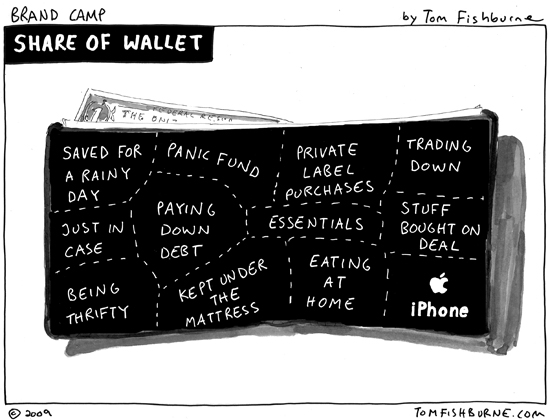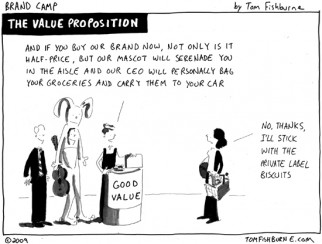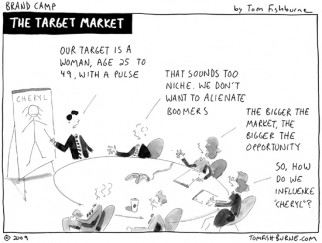I’ve been thinking about how consumers are spending (or not spending) in this environment.
With wallets under lock-and-key, one might think that a premium brand wouldn’t have much of a chance. This is a time when consumers are evaluating where their money goes. With low consumer confidence, there is less that is being spent in general. What is being spent is carefully considered.
Yet Apple still managed to blow away iPhone expectations this last quarter. Even in the midst of a recession. And value-oriented attack ads from Microsoft.
I know, I know, Apple is the stereotypical poster brand. It’s almost cliché to talk about them as a marketing case study. And, yes, their computer sales are down. But I still find the iPhone example pretty inspiring. The average high street has shuttered shops and desperate Sale signs, yet the Apple store always feels crowded.
Why? Because Apple creates meaningful products. They pass the “recession litmus test”. And because they excel at “share of wallet”.
As Seth Godin described recently:
Share of wallet makes so much more sense than share of market. How much does each of your existing customers buy from you? Do they count on you for all the things they buy in this market, or just some? Does Toyota sell me every car my family drives? Does Chubb get to insure every single thing I own? Usually not. Because marketers are so focused on more that they forget to take great care of what they’ve got.
In the lemming stampede to pull the price promotion lever, it’s important to remember the power of loyalty.



George Ward says
Exactly what my wallet looks like-especially the part about my iphone – great job Tom.
George Ward
Ted Hurlbut says
Remember when you’re thinking about s”share of wallet” that one person’s extravagance is another’s gotta-have. For small retailers, it’s essential to build a strategy around the passions shared between the entrepreneur and their customers.
Jon Moss says
Great post Tom, and yes, true here in the Moss household!
Computer and phones >> Apple get the share of wallet
Clothes >> howies (casual stuff)
Cleaning products >> method 😉
And there are a few more examples, and I have to say that the Apple share is the strongest. I have money already allocated for the netbook / tablet and the next iPhone!